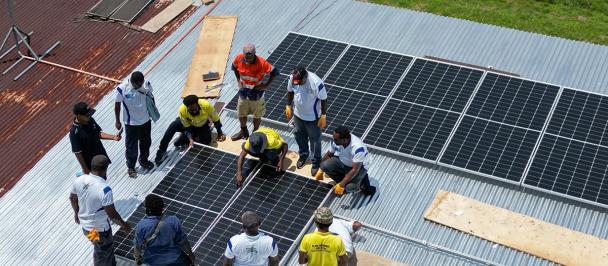As part of the European Union-funded STREIT programme, UNDP has installed Hybrid Solar Photovoltaic Systems to provide reliable and clean electricity to two of the largest secondary schools in Sandaun Province.
Powering Education in Sandaun Province
August 17, 2023
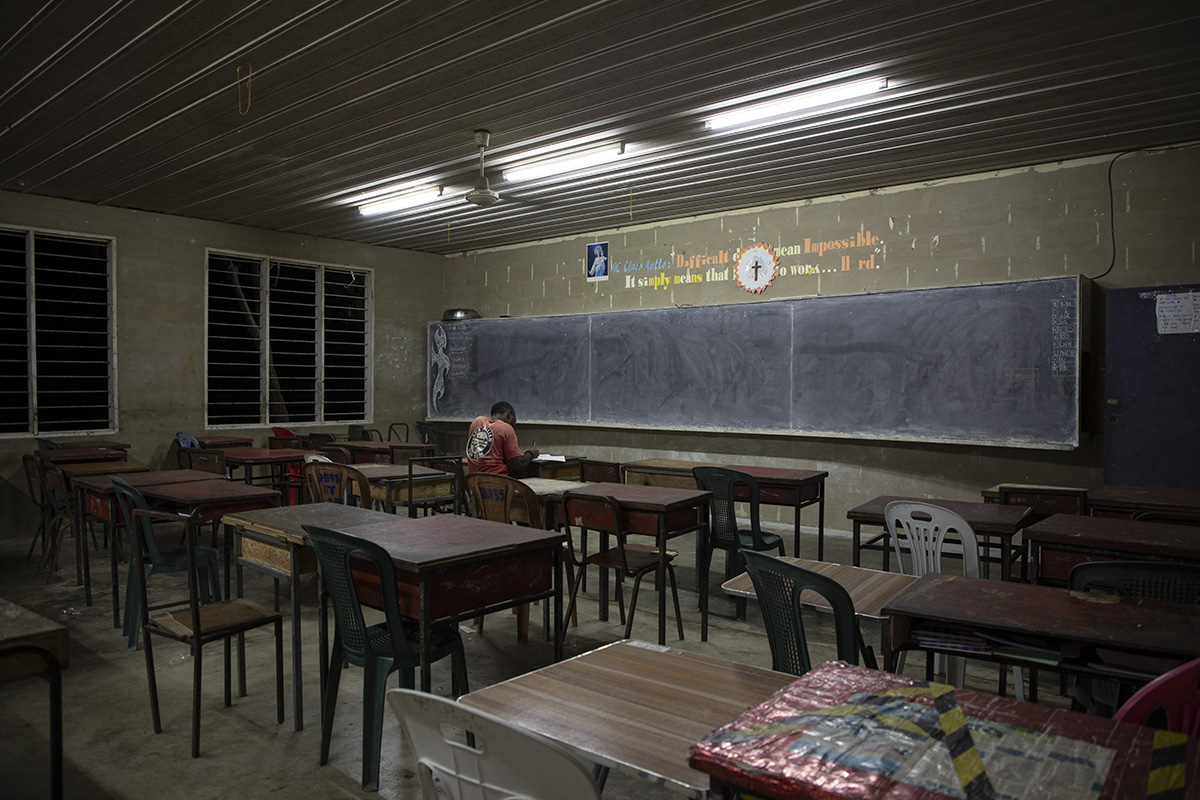
“Power is very unreliable here in Vanimo. We usually experience black outs about three to four times a week, which disrupts our school in many ways. Lessons are cancelled, students are unable to do their homework and teachers cannot properly prepare for their classes. The food in our canteen also keeps going bad.”
This is how Frank Banak, the Principal of Don Bosco Technical Secondary School in Vanimo, Sandaun Province describes the hardships his staff and students have been facing due to the province’s ongoing challenges with energy supply. Don Bosco is located at the end of the provincial power grid, which makes the secondary school highly vulnerable to frequent power outages.
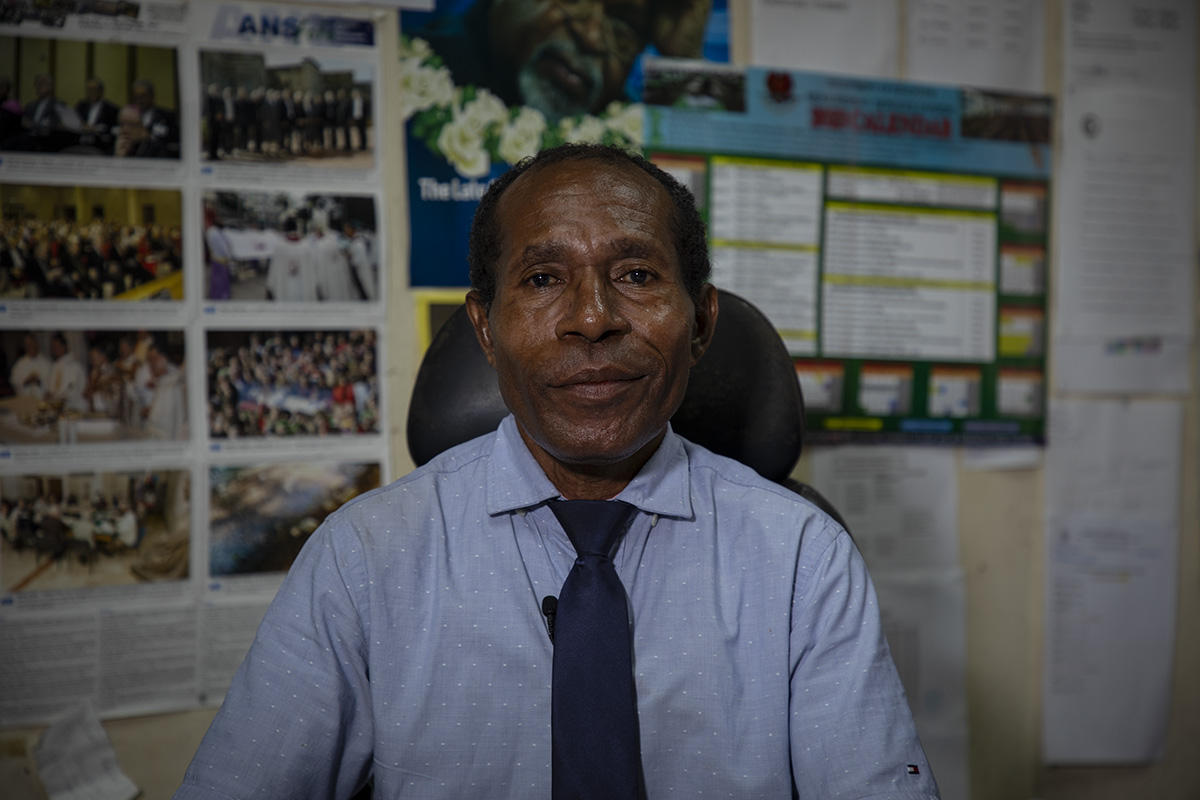
As a principal of close to 1000 students, Frank Banak describes how constant power outages have impacted the education of students in Vanimo.
Local communities have tried to cope with the situation by using diesel to run back-up generators. There are however often delays in the delivery of supplies, which makes diesel an unreliable solution to the problem. “Once we run out of diesel, we often don’t have power for a whole day,” Mr. Banak explains.
The problem has been particularly frustrating for the 986 students Mr. Banak is responsible for. “When the power goes out during the evenings, students cannot do our homework at home. When the power goes out during the day, lessons are cancelled at school. Normally, these issues occur every day,” says Don Bosco’s Head Girl, Nathalie Amanos.
Don Bosco is not the only school in the region that has been enduring similar issues. In fact, the other major secondary school in the province, Vanimo Secondary School, has faced similar problem. As a result, almost 2000 students in the province, around half of whom come from rural areas, have had their studies hindered by unreliable access to electricity.

Nathalie Amanos was frustrated with her information technology and communication classes being constantly cancelled due to power cuts.
In 2021, UNDP began assessing the potential to address these issues by delivering renewable energy solutions.
Working in close partnership with PNG Power Limited and the European Union*, UNDP has provided both schools with a hybrid solar photovoltaic system. A sustainable and low-cost solution, this smart system draws on a combination of roof mounted solar systems and batteries to store energy. Working with the electricity grid, it ensures seamless power during electricity disruptions.
Following extensive and successful testing by PNG Power Ltd, both schools were able to commence using this system in August 2023.
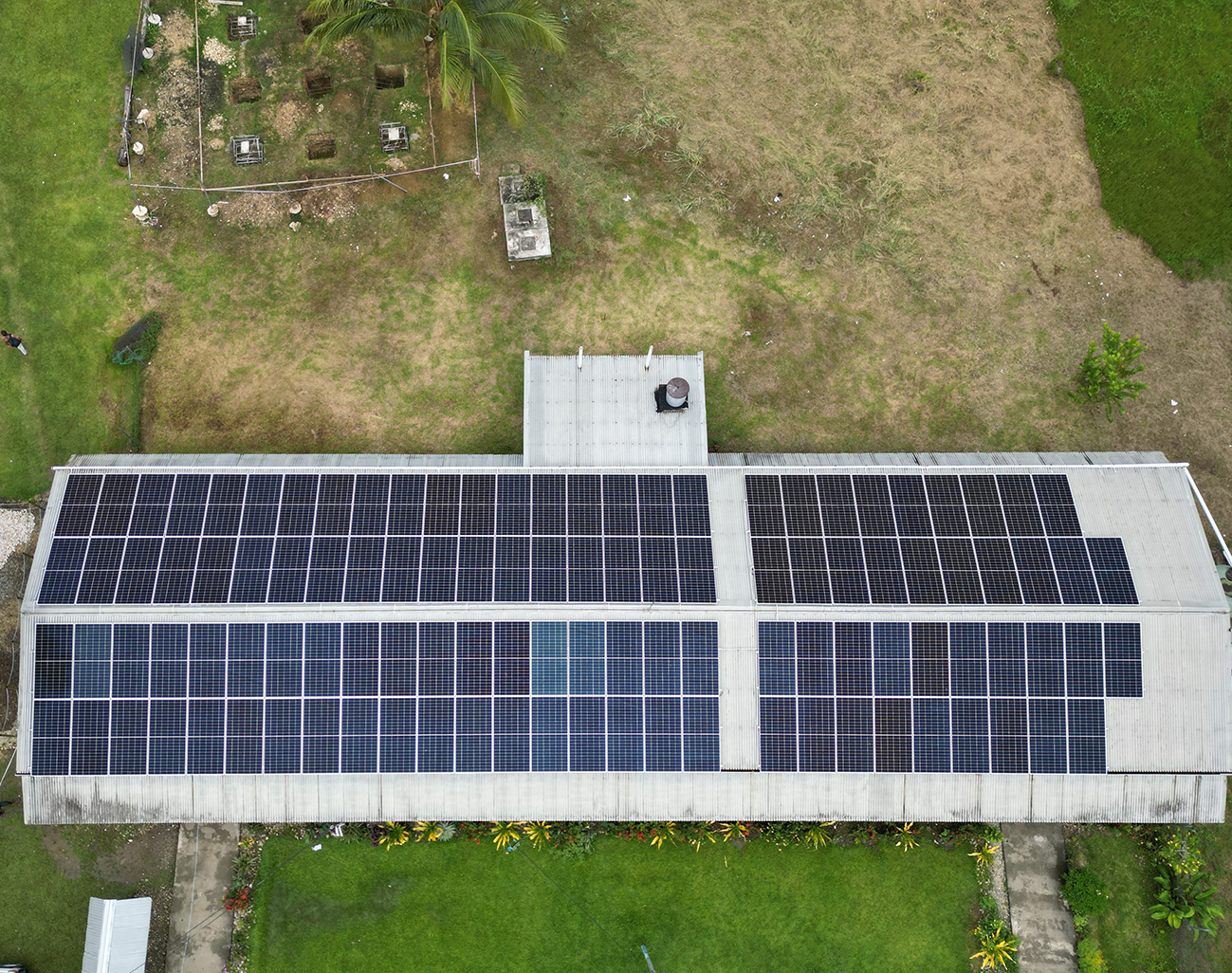
As part of the project, UNDP installed solar panels on the roofs of both of the schools.
“With these new systems in place, the schools will be able to rely on the energy provided by the solar panels if the power goes out during daytime. If the power goes out during nighttime, the batteries can sustain all electronic appliances in the schools for 4 hours. If refrigerators and other large appliances are turned off, the system will be able to provide lighting for up to 24 hours. This will have a positive impact on the lives of students, which is why we are proud to be supporting this initiative with UNDP,” explains Mr. Roy Daggy, Senior Manager of Government Relations and Regulations of PNG Power Ltd.
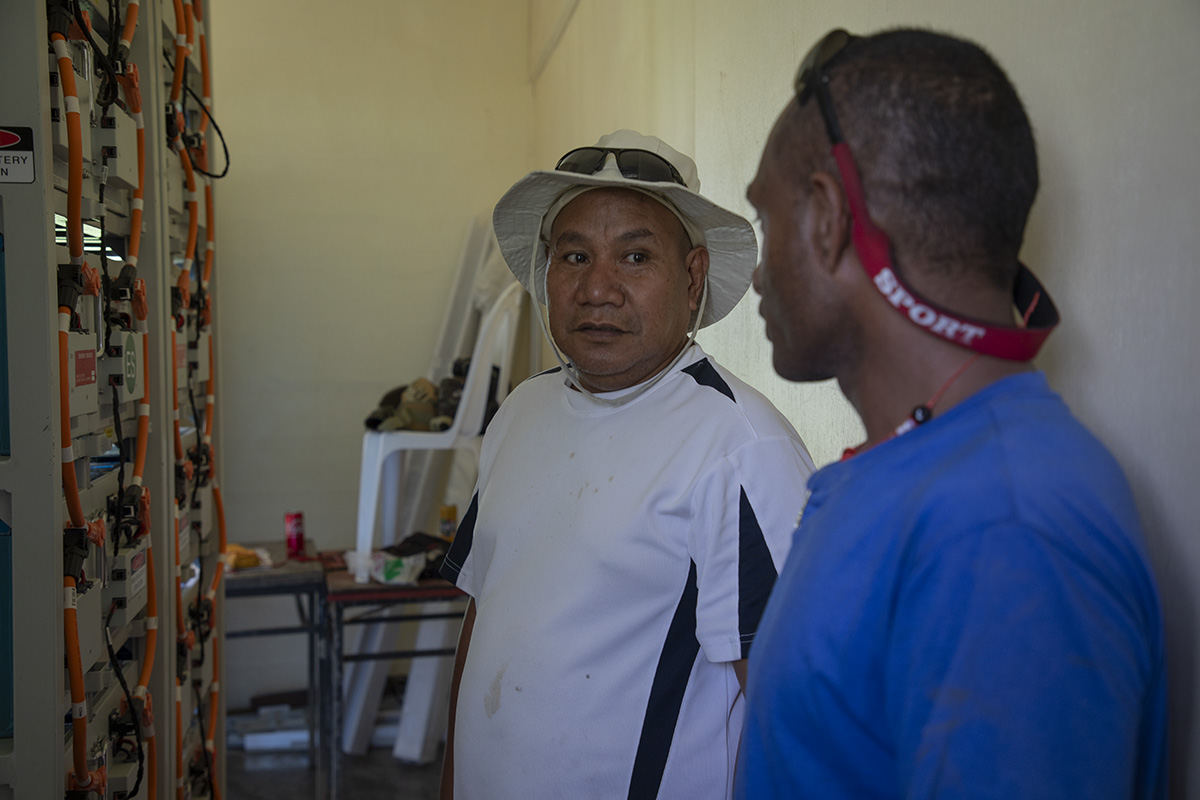
The Hybrid Solar Photovoltaic System collects energy from solar panels and the local PNG Power grid to batteries located on the school grounds.
Teachers and students from both schools gathered to celebrate the launch of the systems on 2 August 2023 in the presence of the Head of Cooperation of the European Union Delegation to Papua New Guinea, Mr Hans Lambrecht, The Acting Deputy Provincial Administrator of Sandaun Province, Mr. Eric Sakin, and the Head of UNDP’s Programme Support Unit, Mr. Dhiraj Singh.
“For years, parents from the most rural and remote parts of Sandaun Province have sent their students to Don Bosco Technical Secondary and Vanimo Secondary to provide the best possible education for their children. I am proud to say that we are the only two schools in the province that provide computing courses. These new systems installed by UNDP with the European Union’s funding will enable us to ensure that students from rural backgrounds will continue to benefit from such opportunities that would otherwise not be available for them,” Mr. William Maiya, the Principal of Vanimo Secondary School declared at the ceremony.
Tapi Noel, a Grade 12 student from Don Bosco Technical, says that the reliable electricity will help him reach his dream of one day becoming a secondary school teacher.
“Whenever there are power outages at my home now, I can always come to the school to complete my homework and study for the upcoming national exams. I am so happy my success will no longer depend on electricity, but on the effort I put in my studies.”

Tapi Noel is convinced that the new system will help him achieve his dream of becoming a secondary school teacher.
*This initiative was delivered under the European Union-funded Support to Rural Entrepreneurship, Investment and Trade in Papua New Guinea Programme (STREIT Programme), which UNDP is one of the five implementing UN agencies of. The programme seeks to strengthen sustainable and inclusive economic development in rural areas of Sandaun and East Sepik Provinces through improved economic returns and opportunities and development of sustainable, climate-proof energy infrastructure.
For more information, please contact:
Juho Valta
Communications Analyst, UNDP Papua New Guinea
juho.emil.aleksi.valta@undp.org
+67579663712

 Locations
Locations




